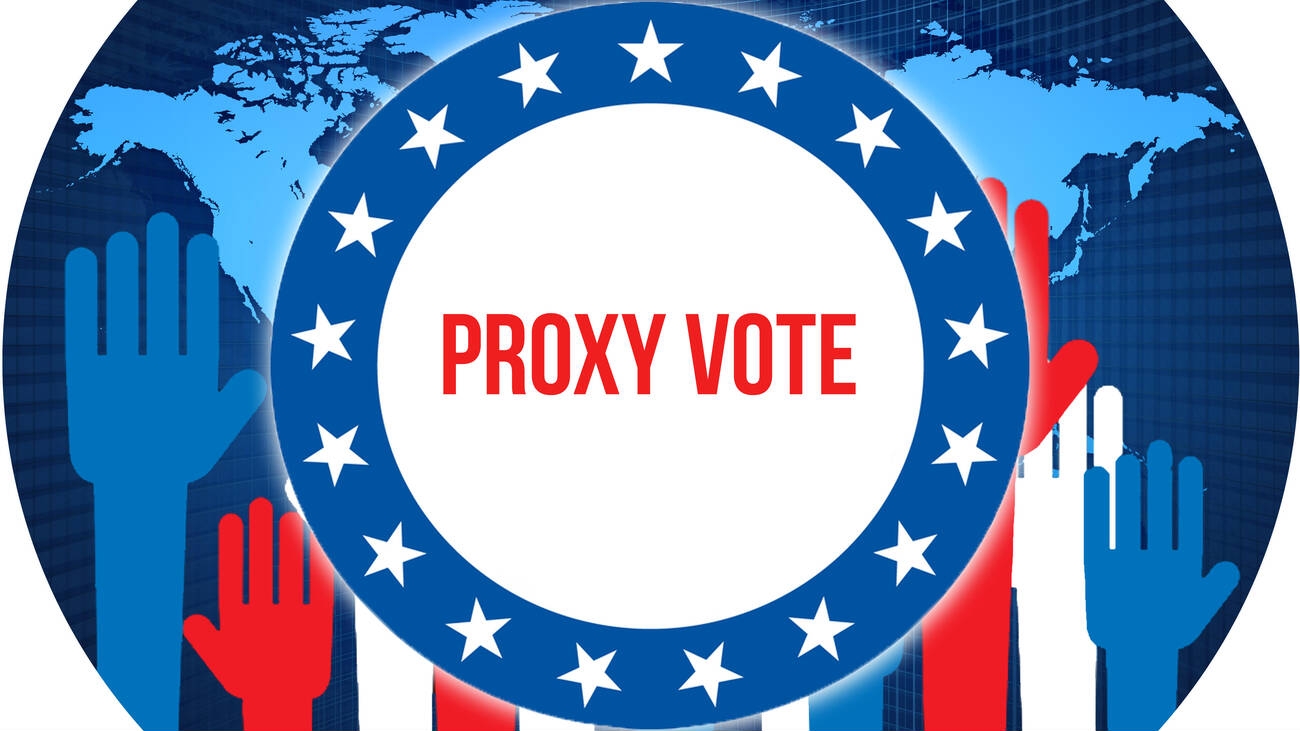Did you know that proxy voting is a growing trend in U.S. elections? With the aim of increasing accessibility and convenience for voters, proxy voting allows someone to cast a vote on your behalf. In this article, we will explore the history, advantages, disadvantages, and impact of proxy voting in U.S. elections. By understanding how it works and its implications on voter turnout and representation, you’ll gain valuable insights into this evolving aspect of our electoral process.
The History of Proxy Voting in U.S. Elections
Proxy voting has been a part of U.S. elections for many years, allowing individuals to cast their votes through designated representatives. It has undergone an evolutionary process, with changes in proxy voting over time. Proxy voting is not limited to U.S. elections alone; it is also used in international elections where voters may be unable to physically attend polling stations. Proxy voting plays a crucial role in ensuring that marginalized communities have equal access to the electoral process, as it allows individuals who may face barriers such as disabilities or transportation issues to still exercise their right to vote. With the advent of the digital age, proxy voting has become even more accessible and convenient, enabling voters to participate remotely through online platforms. Additionally, proxy voting is not exclusive to national elections but can also be utilized in local elections, empowering communities at all levels of government participation.
The Role of Proxy Voting in Democratizing the Electoral Process
The use of proxy voting helps to make the electoral process more inclusive and accessible for all individuals. Proxy voting is a mechanism that allows someone to vote on behalf of another person who is unable or unwilling to cast their own vote. This method has the potential to increase voter engagement by providing an alternative option for those who may face barriers to participating in traditional voting methods.
Proxy voting promotes inclusivity in elections by allowing individuals with disabilities, elderly citizens, and those facing transportation issues or other obstacles to still have their voices heard. It ensures that marginalized communities have equal opportunity and representation in the democratic process.
However, proxy voting also presents potential challenges, such as concerns about fraud or coercion. To address these issues, measures can be put in place, such as requiring strict verification processes and implementing safeguards against misuse.
From a campaign strategy perspective, understanding the implications of proxy voting is crucial. Campaigns need to engage with voters who may choose proxy voting as their preferred method and adapt their outreach strategies accordingly.
Overall, proxy voting plays a significant role in democratizing the electoral process by increasing voter engagement, promoting inclusivity, addressing challenges through effective solutions, impacting marginalized communities positively, and influencing campaign strategies.
Proxy Voting: Advantages and Disadvantages
You may find it beneficial to consider the advantages and disadvantages of using proxy voting in the electoral process. Proxy voting allows individuals to appoint someone else to vote on their behalf, which can have both benefits and drawbacks.
Benefits of Proxy Voting:
- Increased voter engagement: Proxy voting enables individuals who are unable to physically attend polling stations, such as those with disabilities or who are out of town, to still participate in the democratic process.
- Enhanced electoral integrity: Proxy voting can help prevent voter fraud by providing a secure and verifiable method for casting votes.
- Improved democratic representation: Proxy voting ensures that every eligible citizen has a voice in elections, regardless of their circumstances or location.
Drawbacks of Proxy Voting:
- Potential for abuse: There is a risk that proxies may not accurately represent the interests and preferences of the voters they represent.
- Lack of direct participation: Proxy voting removes the personal experience of physically casting a vote, which some argue is essential for fostering civic engagement.
- Complexity and logistical challenges: Implementing an effective proxy voting process requires robust systems and procedures to ensure accuracy, privacy, and accessibility for all voters.
Considering these advantages and disadvantages can help inform discussions on whether proxy voting should be incorporated into the electoral process.
Proxy Voting: How Does It Work
Implementing proxy voting requires establishing a system that allows individuals to designate someone else to vote on their behalf. Proxy voting has gained attention globally, with various perspectives on its merits and drawbacks. Technological advancements have made proxy voting more accessible and convenient, allowing individuals to participate in elections remotely. Public opinion is divided on the subject, with some advocating for its potential to increase voter turnout and others expressing concerns about its potential for fraud or manipulation. Historical controversies surrounding proxy voting have centered around issues of transparency, accountability, and representation. Additionally, it is important to consider the impact of proxy voting on marginalized communities, ensuring that their voices are not suppressed or excluded from the democratic process.
Proxy Voting: Ensuring Voter Accessibility and Convenience
To ensure accessibility and convenience for voters, it’s important to establish a proxy voting system that allows individuals to designate someone else to cast their vote. Proxy voting can greatly enhance voter accessibility by providing options for those who may have difficulty physically going to the polls. By expanding participation through proxy voting, more people can exercise their democratic right and have their voices heard. Technological advancements have made remote voting possible, allowing individuals to securely submit their votes from the comfort of their own homes. This form of democratic inclusion ensures that all eligible voters, regardless of location or mobility, can actively participate in the electoral process. Implementing a proxy voting system is crucial in creating an inclusive democracy that embraces technological progress and empowers every citizen to engage in the democratic process.
The Legal Framework of Proxy Voting in U.S. Elections
The legal framework for proxy voting in U.S. elections establishes guidelines and regulations that govern how individuals can designate someone else to cast their vote on their behalf. Proxy voting has important legal implications, as it involves the transfer of voting power from one individual to another. This raises questions about voter privacy and the security of the voting process. To address these concerns, strict protocols are enforced to ensure that proxy votes are accurately recorded and protected. Despite these measures, challenges still exist, such as potential fraud or coercion in proxy voting. Solutions to these challenges include implementing robust verification processes and providing clear guidelines for proxy voters. When comparing proxy voting internationally, different countries have varying approaches and regulations in place. Finally, it is crucial to consider the implications of proxy voting for marginalized communities, ensuring equal access to this method of participation in elections.
| Proxy Voting: Legal Implications | Proxy Voting: Voter Privacy |
|---|---|
| – Transfer of voting power | – Ensuring confidentiality |
| – Compliance with regulations | – Protecting personal data |
| – Verification processes | – Safeguarding voter secrecy |
| Proxy Voting: Challenges and Solutions | Proxy Voting: International Comparisons |
|---|---|
| – Potential fraud or coercion | – Varying approaches and regulations |
| – Robust verification processes | – Different levels of accessibility |
| – Clear guidelines for proxy voters | – Diverse methods of implementation |
Proxy Voting: Implications for Marginalized Communities
- Equal access to proxy voting
- Addressing barriers faced by marginalized groups
- Promoting inclusivity in the electoral process
Proxy Voting and Voter Fraud: Addressing Concerns and Safeguards
Addressing concerns about voter fraud and implementing safeguards is crucial when it comes to proxy voting in the upcoming U.S. elections. Proxy voting allows someone else to cast a vote on behalf of another individual, which raises questions about the potential for fraud. To ensure election integrity, measures must be taken to protect voter privacy, verify voter identification, and maintain transparency in the proxy voting process.
- Voter fraud: Safeguards should be put in place to prevent fraudulent use of proxy votes.
- Voter privacy: It is important to protect the confidentiality of individuals who choose to use proxy voting.
- Election integrity: Implementing strict protocols will help maintain the accuracy and fairness of the electoral system.
Proxy Voting: Impact on Voter Turnout and Political Participation
Boost your political participation and increase voter turnout by understanding the impact of proxy voting on the upcoming U.S. elections. Proxy voting has a significant impact on voter confidence, as it allows individuals to delegate their vote to someone they trust if they are unable to cast their ballot in person. This can lead to increased voter engagement, especially among marginalized communities who may face barriers to voting. Proxy voting also enhances political accountability, as voters can hold their proxies accountable for representing their interests accurately. However, it is crucial to ensure that proxy voting maintains election integrity by implementing strict regulations and safeguards. By comprehending the implications of proxy voting on these aspects, you can actively participate in the democratic process and contribute to a more inclusive and transparent electoral system.
Proxy Voting and Representation: Examining the Implications
Examining the implications of proxy voting on representation can provide valuable insights into the democratic process. When considering proxy voting, it’s important to understand its impact on marginalized communities, as well as its role in increasing voter engagement. Proxy voting presents challenges for implementation, but there are solutions that can address these issues and ensure a fair and accessible system. Additionally, proxy voting has the potential to positively impact representation and diversity in elected offices by allowing individuals who may face barriers to vote directly to have their voice heard. However, it’s crucial to acknowledge the potential for abuse in proxy voting and develop strategies for prevention to maintain the integrity of the democratic process.
Proxy Voting: Future Trends and Potential Reforms
Proxy voting could undergo significant reforms in the future, potentially altering the landscape of democratic processes. As technological advancements continue to shape our world, the future of proxy voting holds great potential for change. With global perspectives becoming increasingly interconnected, there is a growing need to explore innovative ways to engage voters and ensure their voices are heard. However, implementing these future reforms may face legislative challenges as policymakers grapple with finding the right balance between accessibility and security. It is crucial to strike a balance that both facilitates voter participation and maintains the integrity of our elections. As we look ahead, it is clear that proxy voting will play a pivotal role in shaping the future of democracy, but careful consideration must be given to overcome the challenges that lie ahead.




